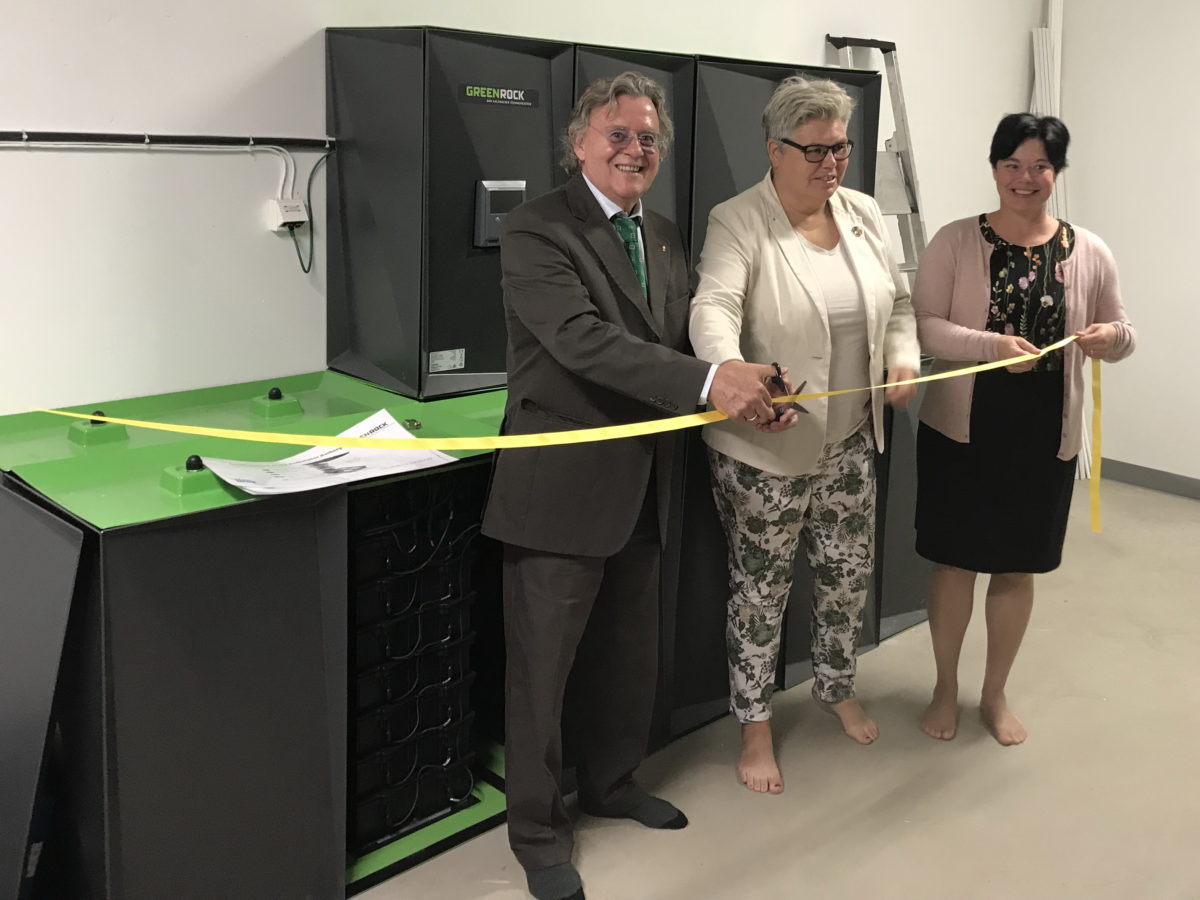Austria-based saltwater battery storage company, BlueSky Energy announced a new project in Sweden. The company will install a 24 kWh saltwater battery alongside a 100 kW solar PV system at a school building in Uppsala, Sweden.
Uppsala’s Foundation for Collaboration between universities, businesses, and public sector, advised the local municipality to opt for a saltwater storage system, citing environmental and safety benefits.
“Uppsala Municipality has become a test bed for new technologies thus creating new knowledge and expertise which can be spread. In Uppsala, there is a unique collaboration between the public sector, private sector, and universities which allows these kinds of exciting new energy solutions to take root,” said Marlene Burwick (Social Democratic Party), Municipal Chairman for the Board of Directors and Commissioner of STUNS Board.
As the school building was completely rebuilt, the municipality sought to install a PV plus storage system to increase self-consumption and improve the school's carbon footprint.
The current system will cover about 10-12% of self-consumption. A spokesperson of BlueSky disclosed to pv magazine that the system was sized for initial trialing of the concept. There will be additional roof space available, and the current set-up can be scaled to increase self-consumption.
Moreover, the system aims to increase the share of renewable energy in the public building’s energy mix; feeding into the grid is not planned. The school's 800 pupils will also be tought about climate change, the environment and renewable energy, using the PV plus storage system as an educational resource.
A greener alternative
Popular content
Saltwater battery storage systems can be an alternative to the more market popular lithium-ion storage systems. The company itself cites environmental and safety benefits, pointing to the advantages of its product.
Lithium mining can have adverse effects on the adjacent environment, and so far, there are only limited options to fully recycle lithium from existing batteries. Indeed, the material’s structure, which enables it to store energy, is altered over time, and recycling processes that enable this structure to be restored, rather than wrecking it, are still in the research phases.
Due to saltwater batteries' lower performance, when it comes to weight and power density, its application is limited stationary storage systems, and cannot be used in EV’s, for example. Nonetheless, theyhave another advantage over lithium-ion based systems, as they cannot explode in a fire and, thus, are less harzardous to fire fighters and occupants in such an event.
BlueSky highlights that it uses Aquion’s saltwater batteries, which reportedly are the only battery storage systems to receive a “cradle to cradle” certificate. For many, this trumps other potential advantages lithium-ion storage systems have.
“It is thanks to the Municipality’s high set climate goals and ambitions to be completely nontoxic in its school environments that we are now testing this battery, which its main content is saltwater, at Tiunda school. Uppsala welcomes the opportunity to share its experiences regarding smart climate and environmental solutions with other municipalities in Sweden and internationally,” said Maria Gardfjell (Environmental Party) Commissioner responsible for Environmental and Climate Issues.
This content is protected by copyright and may not be reused. If you want to cooperate with us and would like to reuse some of our content, please contact: editors@pv-magazine.com.



By submitting this form you agree to pv magazine using your data for the purposes of publishing your comment.
Your personal data will only be disclosed or otherwise transmitted to third parties for the purposes of spam filtering or if this is necessary for technical maintenance of the website. Any other transfer to third parties will not take place unless this is justified on the basis of applicable data protection regulations or if pv magazine is legally obliged to do so.
You may revoke this consent at any time with effect for the future, in which case your personal data will be deleted immediately. Otherwise, your data will be deleted if pv magazine has processed your request or the purpose of data storage is fulfilled.
Further information on data privacy can be found in our Data Protection Policy.